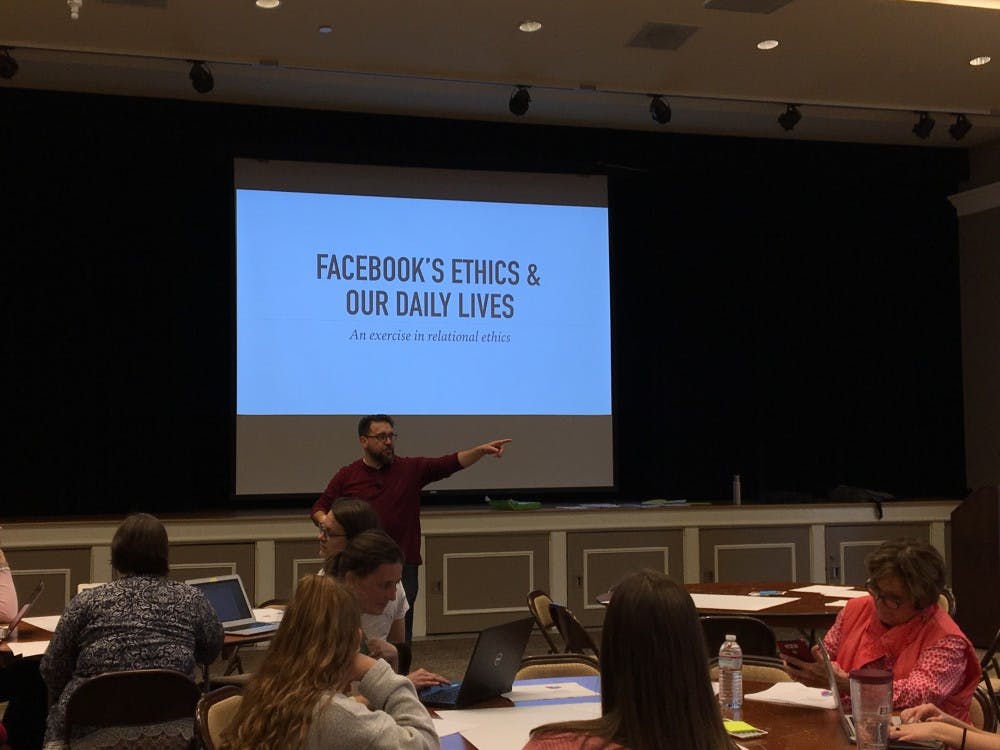The Facebook ethics workshop on March 28 raised just as many questions as it did answers. One of the biggest concerns was whether what Facebook did was illegal.
This discussion on ethics comes in light of the recent exposure of data aggregation by data mining firm Cambridge Analytica. At the ethics workshop, attendees learned the digital world is a lot more connected than they thought through an interactive stakeholder plotting exercise.
Different groups were given profiles of stereotypical Facebook users and their motivations for using Facebook. The groups then plotted these users and other stakeholder types — like someone who shares political beliefs or has strong economic benefit — and drew economic and political connections. The groups also looked at the different spheres of influence that arose.
The workshop discussed Facebook’s role in politics, strategic communications and media analytics. William Moner, assistant professor of communications, introduced the hands-on and interactive event about the role of social media in the 2016 election.
Moner explained that Facebook is not just a social network anymore. It’s now an advertising network and tool for direct marketing. It is a tool that can take data from profiles in aggregate and sell that to advertisers.
Moner explained that when you give an app permission to your Facebook data, Facebook can track not only your data but the data of all of your Facebook friends.
"When you walk into the Facebook office in Silicon Valley you see the motto, ‘move fast and break things.’ Turns out they did move fast and broke some very significant things,” Moner said.
Megan Squire, a professor in computing sciences, closed out the night with some lessons learned and cautions for the future. Squire, who works heavily with Facebook data, said that as of about a month ago, Facebook is no longer allowing some types of their data to be used by academic researchers.
“This data is really important to us," Squire said. "It’s important to study to make societal and academic developments. It’s just a change that Facebook decides to make and they make it without announcement or explanation."
Moner said that although the role Facebook plays in society may now be unclear, one thing is certain.
“This idea Facebook has of moving fast and breaking things has certainly broken a lot of things,” Moner said.


